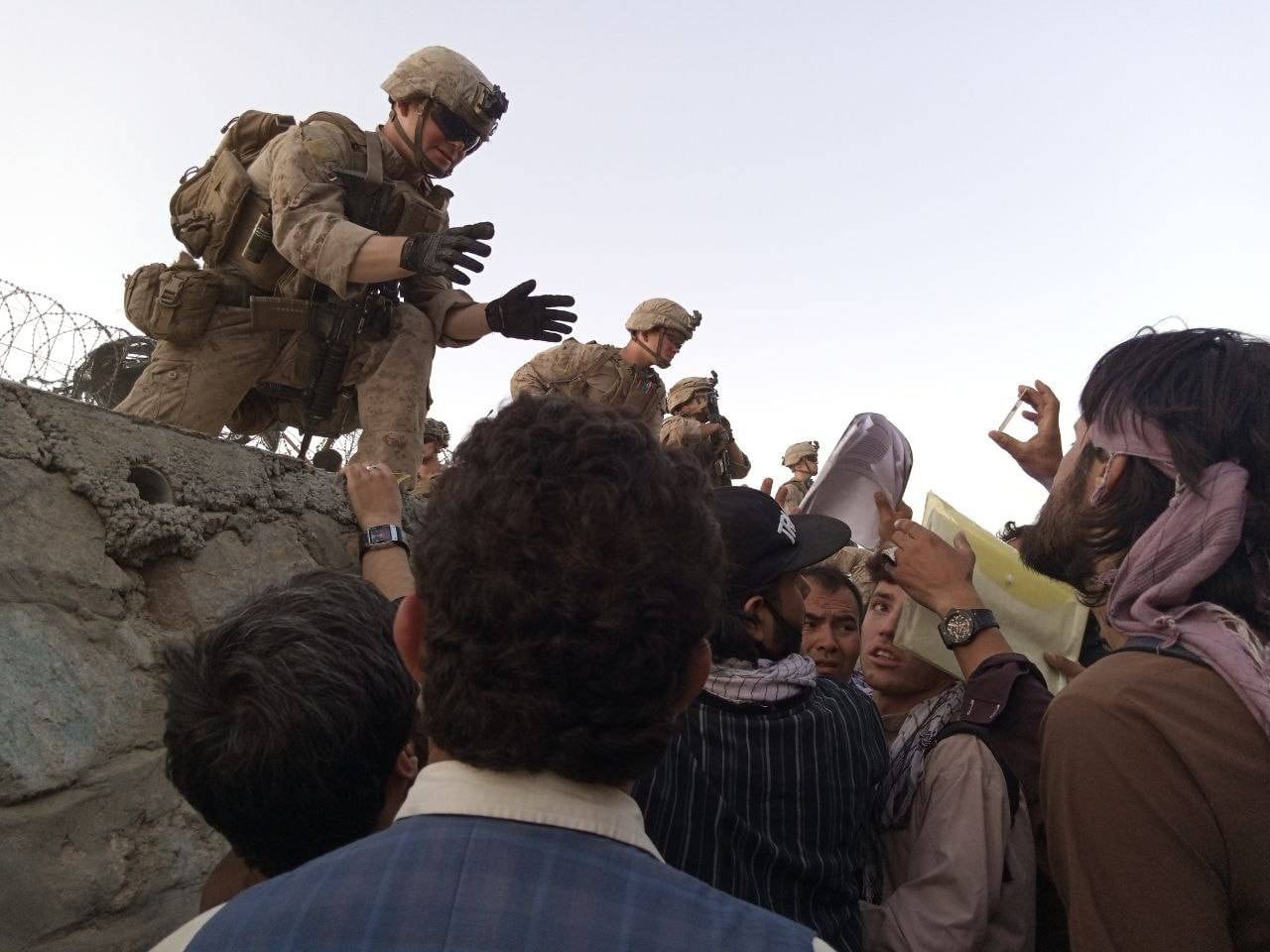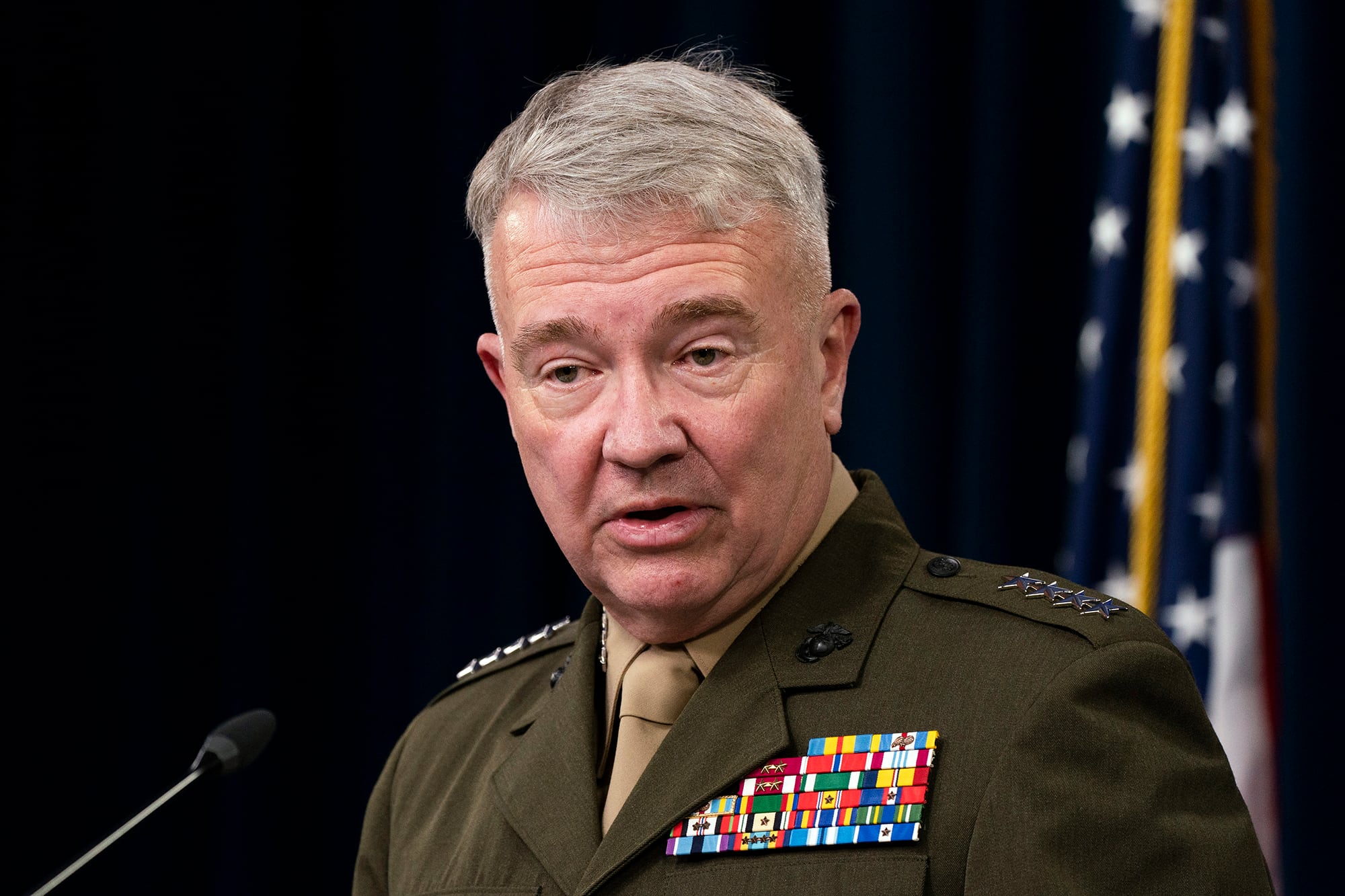The former head of U.S. Central Command pushed back this week on accusations that military leaders could have prevented the suicide bombing that killed 13 American service members in the final days of the withdrawal from Afghanistan, insisting that intelligence reports were not as detailed as some critics believe.
“We were dealing with the possibility of a suicide vest attack but without specific description of the person we were dealing with,” former Marine Corps Gen. Frank McKenzie said in an interview with Fox News on Thursday. “We were dealing with the possibility of an indirect fire attack, either rockets or mortars. But I do know that there was no intelligence to support the assertion that we knew what the bomber looked like.”
Thirteen U.S. troops and hundreds more Afghan civilians were killed on Aug. 26, 2021, in a suicide bombing at the Abbey Gate outside Kabul’s Hamid Karzai International Airport. The tragedy came amid a chaotic withdrawal of U.S. forces from the airfield as Taliban fighters retook control of the country.
“I believe history is going to view the decision to come out of Afghanistan in the way that we did and the manner that we were directed to come out as a fatal flaw. I think history is going to be very hard on that.”
— Retired Marine Corps Gen. Frank McKenzie, former head of U.S. Central Command
Military leaders — McKenzie in particular — have come under renewed criticism in recent weeks for failing to prevent the tragedy. During a congressional event last month, House Republicans and family members of the troops killed accused administration officials of ignoring intelligence reports in the days before the attack, which could have possibly prevented the massive loss of life.
Last March, former Marine Sgt. Tyler Vargas-Andrews testified before the House Foreign Affairs Committee that troops on the ground spotted a man fitting the description of a suspected suicide bomber hours before the attack, but were denied the authority to detain or kill the suspect.
McKenzie said no such specific intelligence of the attacker existed.
“I can tell you there was no ‘be on the lookout for a person meeting that description’ warning on that day or prior to that day in Afghanistan,” he told Fox News.
The former commander also dismissed reports that U.S. forces had known the location of the attacker days prior, but failed to take steps to stop him. “We just didn’t have that fidelity of information.”
RELATED

And McKenzie defended the decision to allow Taliban fighters to run security operations outside the airport while U.S. forces patrolled the perimeter and made final departure preparations. Critics say that move likely let the bomber operate freely, without fear of harm from American troops.
“I do not regret cutting that deal,” he said. “I feel if we had not done so, our casualties would have been significantly higher.”
Leaders of the House Foreign Affairs Committee have promised additional hearings in coming months to continue looking at alleged failures by the Defense and State Departments in the withdrawal effort.
McKenzie recommended against the withdrawal in 2021 and said in the interview he regrets that planning and logistics for the operation were not started sooner.
“I believe history is going to view the decision to come out of Afghanistan in the way that we did and the manner that we were directed to come out as a fatal flaw,” he said. “I think history is going to be very hard on that.”
Leo covers Congress, Veterans Affairs and the White House for Military Times. He has covered Washington, D.C. since 2004, focusing on military personnel and veterans policies. His work has earned numerous honors, including a 2009 Polk award, a 2010 National Headliner Award, the IAVA Leadership in Journalism award and the VFW News Media award.





